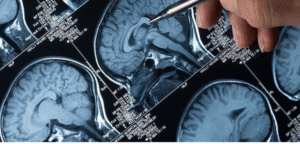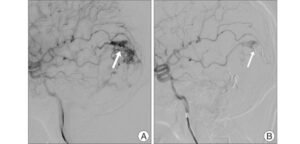Brain Tumor – Types, Symptoms & Advanced Treatment in Delhi
A brain tumor is an abnormal growth of cells in the brain. It can be either cancerous or non-cancerous. Brain tumors develop when cells in the brain start to grow uncontrollably, forming a mass.
Understanding brain tumor causes can be complex, but factors such as genetic mutations and exposure to certain chemicals may play a role. It’s crucial to identify and understand the nature of these tumors to seek appropriate treatment.
What Are the Symptoms of Brain Tumor?
Symptoms of brain tumor can vary depending on the tumor’s size, type, and location. Common symptoms include headaches, nausea, vomiting, seizures, changes in vision or speech, and difficulty with balance or coordination. Some people may also experience changes in personality or cognitive functions. If you notice any of these symptoms, it’s essential to consult a healthcare professional for a proper diagnosis.
How is Brain Tumor Diagnosed?
Brain tumor diagnosis involves several steps. Initially, a doctor will review your medical history and conduct a physical examination. If a brain tumor is suspected, imaging tests such as MRI (Magnetic Resonance Imaging) or CT (Computed Tomography) scans will be recommended to visualize the tumor. A biopsy, where a small sample of the tumor is removed and examined, may also be performed to determine the tumor type and grade. Accurate diagnosis is crucial to plan effective treatment.
What Are the Options for Brain Tumor Treatment?
When it comes to brain tumor treatment, several options are available, depending on the tumor’s type, location, and stage. The primary treatment modalities include:
- Surgery: Brain tumor operation is often the first line of treatment. The goal is to remove as much of the tumor as possible while preserving healthy brain tissue. Surgery can be highly effective in alleviating symptoms and improving prognosis, especially if the tumor is located in a surgically accessible area.
- Radiation Therapy: This treatment uses high-energy rays to target and destroy tumor cells. Radiation therapy is frequently employed after surgery to eliminate any remaining tumor cells or as a primary treatment for tumors that are not amenable to surgical removal. It can also be used to shrink tumors before surgery in some cases.
- Chemotherapy: Chemotherapy involves using drugs to kill cancer cells or inhibit their growth. These drugs can be administered orally or intravenously. Chemotherapy is often used in conjunction with other treatments, particularly for malignant brain tumors that have spread or are not fully removable by surgery.
- Targeted Therapy: This treatment focuses on specific molecules involved in tumor growth and survival. By targeting these molecules, targeted therapy aims to disrupt the tumor’s growth while minimizing damage to healthy cells. It can be used alongside other treatments to enhance effectiveness.
- Immunotherapy: Immunotherapy leverages the body’s immune system to fight the tumor. This approach includes treatments that help the immune system recognize and attack cancer cells more effectively. It is an emerging field with promising results for certain types of brain tumors.
Why Choose Us for Your Carotid Disease Treatment?
When it comes to brain tumor treatment, we offers exceptional care with a focus on precision and safety. We ensures that each patient receives personalized treatment plans, utilizing the latest techniques for effective outcomes. If you’re looking for the best care, we provide top-notch brain tumor treatment in Delhi with state-of-the-art facilities and expert surgeons.
Related Blogs & Videos

From Diagnosis to Treatment: What Role Does Neuro-Oncology Play in Enhancing Patient Outcomes?
According to the World Health Organization (WHO), primary brain tumors account for approximately 2% of…
Read Article →
Is Tumor Embolization a Major Surgery?
Tumor embolization, designed to cut off blood supply to tumors delicately, stands out for its…
Read Article →